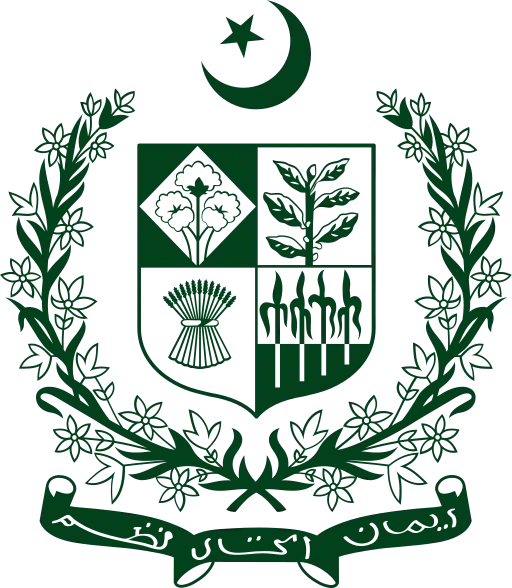 |
|---|
|
|
Pakistan is a multi-party democracy. The country has many political parties and many times in the past the country has been ruled by a coalition government.
The Parliament of Pakistan is bicameral, consisting of the National Assembly of Pakistan and the Senate.
Brief history and overviews
The military-dominated Establishment has directly ruled Pakistan for nearly half of its existence since its creation in 1947, while frequently exerting covert dominance over the political leadership during the remainder.[1][2] The Establishment in Pakistan includes the key decision-makers in the country's military and intelligence services, national security, as well as its foreign and domestic policies, including the state policies of aggressive Islamization during the military dictatorship of General Muhammad Zia-ul-Haq. However, the military establishment later reversed its support of political Islam under General Pervez Musharraf, who pursued enlightened moderation in the 2000s.
Till 1990, Pakistan Peoples Party (PPP) was the only major party of Pakistan. After Zulfiqar Ali Bhutto died, Benazir Bhutto took control and they remained a strong position throughout Pakistan. In 1990, Nawaz Sharif of Islami Jamhoori Ittehad (IJI) won the elections. Two major parties were in Pakistan. After IJI dissolved and Nawaz Sharif founded Pakistan Muslim League (N), PPP and PML(N) were the major two parties of Pakistan. In 1993, Peoples Party won the election again. In 1996, Pakistan Tehreek-e-Insaf was formed. In 2013, PTI took part in the elections and won 35 seats in the National Assembly of Pakistan. After the 2018 Pakistan elections, PTI became the government and became one of the three major parties of Pakistan.
In 2020, Pakistan Democratic Movement (PDM) was formed of many parties as a movement against then prime minister Imran Khan.
Gilgit-Baltistan
Pakistan Peoples Party won the first Gilgit-Baltistan elections and was the only major party of Gilgit-Baltistan with 20 seats out of 33. However, in 2015, Pakistan Muslim League (N) won 15 seats and became the major party of Gilgit-Baltistan and PPP only received one seat in the Gilgit-Baltistan Assembly. However, in the 2020 elections, Pakistan Tehreek-e-Insaf (PTI) won 16 seats and became the only major party of Gilgit-Baltistan with PPP winning 3 and PML(N) winning two seats.
Members of the Parliament
| Party | Flag | Founded | Political position |
Leader | National Assembly |
Senate | ||
|---|---|---|---|---|---|---|---|---|
| Pakistan Tehreek-e-Insaf پاکستان تحريکِ انصاف Pakistan Movement for Justice |
 |
1996 | Centre | Imran Khan | .jpg.webp) |
Assembly dissolved | 26 / 100 | |
| Pakistan Muslim League (N) پاکستان مسلم لیگ (ن) Pākistān Muslam Lig (Nūn) |
 |
1993 | Centre-right | Shehbaz Sharif | .jpg.webp) |
18 / 100 | ||
| Pakistan Peoples Party پاکستان پیپلز پارٹی Pākistān Pīplz Pārṭī |
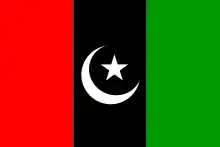 |
1967 | Centre-left | Bilawal Bhutto | _(cropped).jpg.webp) |
21 / 100 | ||
| Muttahida Qaumi Movement – Pakistan متحدہ قومی موومنٹ پاکستان Muttaḥidah Qọ̄mī Mūwmaṅṫ Pākistān United National Movement-Pakistan |
 |
2016 | Centre-left | Khalid Maqbool | .jpg.webp) |
3 / 100 | ||
| Jamiat Ulema-e-Islam – Fazl[lower-alpha 1] جمیعت علمائے اسلام (ف) Assembly of Islamic Clerics |
 |
1980 | Right-wing | Fazl-ur-Rahman | .png.webp) |
5 / 100 | ||
| Jamaat-e-Islami جماعتِ اسلامی Islamic Congress |
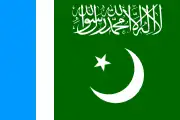 |
1947 | Right-wing to far-right |
Siraj-ul-Haq | .jpg.webp) |
1 / 100 | ||
| Pakistan Muslim League (Q)[lower-alpha 2] پاکستان مسلم لیگ (ق) Pākistān Mislam Lig (Q) |
.svg.png.webp) |
2002 | Centre-right | Shujaat Hussain |  |
1 / 100 | ||
| Awami National Party عوامي نېشنل ګوند عوامی نيشنل پارٹی ʿAwāmī Nīšonal Pārṭī People's National Party |
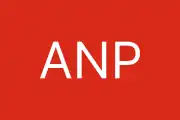 |
1986 | Center-left to left-wing |
Asfandyar Wali | .jpg.webp) |
2 / 100 | ||
| Pashtunkhwa Milli Awami Party پښتونخوا ملي عوامي ګوند پشتونخوا ملی عوامی پارٹی |
 |
1989 | Left-wing | Mahmood Achakzai | .jpg.webp) |
2 / 100 | ||
| National Party نيشنل پارٹی Nīšonal Pārṭī |
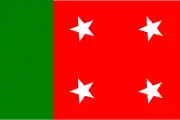 |
2003 | Centre-left | Abdul Malik Baloch | .jpeg.webp) |
2 / 100 | ||
| Balochistan National Party بلوچستان نيشنل پارٹی Balōčistān Nīšonal Pārṭī |
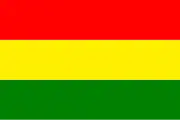 |
1996 | Left-wing | Akhtar Mengal | .jpg.webp) |
2 / 100 | ||
| Balochistan Awami Party بلوچستان عوامی پارٹی Balōčistān Awāmī Pārṭī Balochistan People's Party |
 |
2018 | Centre | Khalid Hussain Magsi | 10 / 100 | |||
| Grand Democratic Alliance گرانڈ جمہوری اتحاد Grānd Jumhuuri Ittehaad |
 |
2018 | Centre | Pir of Pagaro VIII | 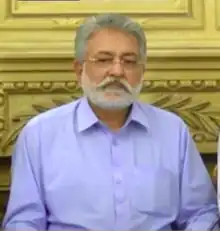 |
1 / 100 | ||
| Awami Muslim League عوامی مسلم لیگ پاکستان Awāmī Musallam League Pākistān |
 |
2008 | Centre | Sheikh Rasheed Ahmad |  |
0 / 100 | ||
| Jamhoori Wattan Party جمہوری وطن پارٹی Republican National Party |
 |
1990 | Shahzain Bugti | 0 / 100 | ||||
| Independent آزاد اراکین |
N/A |
4 / 100 | ||||||
Unrepresented parties
This is the list of registered parties that are currently unrepresented in Parliament as of 2018.[3]
Dissolved parties
Unregistered parties
| Party | Flag | Date of foundation | Political position | Leader(s) | |
|---|---|---|---|---|---|
| Mazdoor Kisan Party مزدور کسان پارٹی Workers and Peasants Party |
 |
1968 | Far-left | Afzal Shah Khamosh[14] | |
| Pakistan Christian Congress پاکستان کرسچین کانگریس |
 |
1985 | Centre-right | Nazir S Bhatti | |
| Sindh Taraqi Pasand Party سنڌ ترقي پسند پارٽي سندھ ترقی پسند پارٹی |
 |
1991 | Left-wing | Qadir Magsi | |
| Pakistan Green Party پاکستان گرین پارٹی |
 |
2002 | Green | Liaquat Ali Shaikh | |
| Majlis-e-Ahrar-ul-Islam مجلسِ احرارِ اسلام |
 |
1929 | Far-right | Syed Muhammad Kafeel Bukhari[15] | |
| Communist Party of Pakistan کمیونسٹ پارٹی آف پاکستان |
 |
1948 | Far-left | Jameel Ahmad Malik[16] | |
| Pakistan Social Democratic Party پاکستان سوشل ڈیموکریٹک پارٹی |
— | Mujeeb ur Rehman Kiani | |||
| Communist Party of Pakistan (Thaheem) کمیونسٹ پارٹی آف پاکستان (تھہیم) |
 |
2002 | Far-left | Khadim Thaheem[17] | |
| Shia Ulema Council شیعہ علماء کونسل پاکستان |
 |
— | Centre-left | Syed Sajid Ali Naqvi | |
| All Pakistan Muslim League آل پاکستان مسلم لیگ |
 |
2010 | Centre to centre-right | — | |
| Bahawalpur National Awami Party بہاولپور نیشنل عوامی پارٹی |
 |
2010 | Nawab Salahuddin Abbasi | ||
| Sunni Tehreek سنی تحریک |
1990 | Far-right | Ahmad Bilal Qadri[18][19] | ||
Provincial Assembly members
This is the list of parties that are currently represented in Provincial Assemblies of Sindh, Punjab, Balochistan, KPK and Gilgit-Baltistan Assembly as of 2018:
| Party | Flag | Sindh | Punjab | Balochistan | KPK | Gilgit-Baltistan | |
|---|---|---|---|---|---|---|---|
| Pakistan Tehreek-e-Insaf پاکستان تحريکِ انصاف |
 |
Assemblies dissolved | 20 / 33 | ||||
| Pakistan Muslim League (N) پاکستان مسلم لیگ (ن) |
 |
Assembly dissolved | Assemblies dissolved | 3 / 33 | |||
| Tehreek-e-Labbaik Pakistan تحریک لبیک پاکستان |
 |
Assembly dissolved | — | — | — | — | |
| Pakistan Peoples Party پاکستان پیپلز پارٹی |
 |
Assemblies dissolved | — | Assembly dissolved | 5 / 33 | ||
| Jamaat-e-Islami جماعتِ اسلامی |
 |
Assembly dissolved | — | — | Assembly dissolved | — | |
| Jamiat Ulema-e-Islam (F) جمیعت علمائے اسلام (ف)} |
 |
— | — | Assemblies dissolved | 1 / 33 | ||
| Pakistan Muslim League (Q) پاکستان مسلم لیگ (ق) |
.svg.png.webp) |
— | Assembly dissolved | — | Assembly dissolved | — | |
| Muttahida Qaumi Movement – Pakistan متحدہ قومی موومنٹ پاکستان |
 |
Assembly dissolved | — | — | — | — | |
| Awami National Party عوامی نيشنل پارٹی |
 |
— | — | Assemblies dissolved | — | ||
| Pashtunkhwa Milli Awami Party پشتونخوا ملی عوامی پارٹی |
 |
— | — | Assembly dissolved | — | — | |
| Balochistan National Party بلوچستان نيشنل پارٹی |
 |
— | — | — | — | ||
| Balochistan Awami Party بلوچستان عوامی پارٹی |
 |
— | — | Assembly dissolved | — | ||
| Grand Democratic Alliance گرانڈ جمہوری اتحاد |
 |
Assembly dissolved | — | — | — | — | |
| Jamhoori Wattan Party جمہوری وطن پارٹی |
 |
— | — | Assembly dissolved | — | — | |
| Balochistan National Party (Awami) بلوچستان نیشنل پارٹی (عوامی) |
.svg.png.webp) |
— | — | — | — | ||
| Hazara Democratic Party ہزارہ ڈیموکریٹک پارٹی |
 |
— | — | — | — | ||
| Majlis Wahdat-e-Muslimeen مجلس وحدت مسلمین |
— | — | — | — | 1 / 33 | ||
| Balawaristan National Front[lower-alpha 11] بلاورستان نيشنل فرنٹ Balāwaristān Naishanal Franṭ |
 |
— | — | — | — | 1 / 33 | |
| Pakistan Rah-e-Haq Party پاکستان راہِ حق پارٹی |
 |
— | Assembly dissolved | — | — | — | |
| Islami Tehreek Pakistan اسلامی تحریک پاکستان |
 |
— | — | — | — | 1 / 33 | |
| Independent آزاد اراکین |
— | — | Assemblies dissolved | 1 / 33 | |||
See also
Notes
- ↑ Officially registered by Election Commission of Pakistan as Jamiat Ulema-e-Islam Pakistan[3]
- ↑ Officially registered by Election Commission of Pakistan as Pakistan Muslim League[3]
- ↑ Officially registered by Election Commission of Pakistan as Markazi Jamiat Ahl-e-Hadith Pakistan[3]
- ↑ Officially registered by Election Commission of Pakistan as Pasban Democratic Party[3]
- ↑ Officially registered by Election Commission of Pakistan as Mohajir Qaumi Movement Pakistan[3]
- 1 2 See First phase (1962–1969)
- 1 2 See Second phase (1969–1977)
- 1 2 See Third phase (1977–1985)
- ↑ It was officially registered by Election Commission of Pakistan as Pakistan Awami Raj[6]
- ↑ It was officially registered by Election Commission of Pakistan as Jamaat-e-Suffah[6]
- ↑ Although, represented by BNF's Leader Nawaz Khan Naji as Independent candidate[20] but technically may be considered as BNF's representation.
References
- ↑ Shah, Saeed (19 August 2019). "Pakistan Extends Powerful Army Chief's Term". Wall Street Journal. ISSN 0099-9660. Retrieved 19 May 2021.
- ↑ Jaffrelot, Christophe (2015). The Pakistan Paradox: Instability and Resilience. Oxford University Press. p. 586. ISBN 978-0-19-023518-5.
The civil-military establishment ruled Supreme for 60 years - from 1947 to 2007 - by crushing or betraying social movements and preventing the development of society.
- 1 2 3 4 5 6 "List of Enlisted Political Parties" (PDF). www.ecp.gov.pk. Election Commission of Pakistan. 15 January 2024. Archived from the original (PDF) on 16 January 2024. Retrieved 16 January 2024.
- ↑ "Maulana Sami's son named JUI-S acting chief". The Express Tribune (newspaper). 4 November 2018. Retrieved 1 May 2021.
- ↑ "PM Imran Khan will have to resign: Shah Owais Noorani". SAMAA TV. 21 October 2019. Retrieved 1 June 2021.
- 1 2 3 4 5 6 7 "List of Enlisted Political Parties" (PDF). www.ecp.gov.pk. Election Commission of Pakistan. 20 December 2023. Archived from the original (PDF) on 21 December 2023. Retrieved 25 December 2023.
- ↑ "Mustaqbil Pakistan: New party boasts of a 'professional cadre'". The Express Tribune (newspaper). 25 May 2014.
- ↑ "Sunni Tehrik becomes a political party". Dawn (newspaper). 30 January 2012. Retrieved 13 June 2021.
- ↑ "'Tabdeeli Pasands' of Sindh to launch". The News International (newspaper). 20 January 2012. Retrieved 5 September 2021.
- ↑ "STP, AT express strong reservations over digital census plan". Dawn (newspaper). 1 March 2023. Retrieved 8 March 2023.
- 1 2 "From All India Muslim League to Pakistan Muslim League". Pakistan Today. 23 June 2021.
- ↑ "A leaf from history: Dousing the fire of hate". Dawn (newspaper). 13 October 2012. Retrieved 3 September 2021.
- ↑ "An unmatched leader". The News International (newspaper). 15 August 2021. Retrieved 3 September 2021.
- ↑ "Afghanistan's situation: Pakhtun Qaumi Jirga urges govt to revisit foreign policy". The News International (newspaper). 8 August 2021. Retrieved 4 September 2021.
- ↑ "سید محمد کفیل بخاری مجلس احرار اسلام کے قائم مقام مرکزی امیر منتخب" (in Urdu). Daily Jasarat (newspaper). 26 February 2021. Retrieved 12 April 2021.
- ↑ "Afghanistan: Pakistan rejoices at Taliban victory as West flounders". Deutsche Welle. 18 August 2021. Retrieved 27 October 2021.
- ↑ JACOBABAD: Call to shift power from GHQ to parliament -DAWN - Local; February 25, 2008
- ↑ "Sunni Tehreek chief taken into custody". The Express Tribune. 19 February 2017. Retrieved 30 July 2021.
- ↑ "Ditching the tag of mysticism, Barelvi militancy rears head in form of Sunni Tehreek". The News International. 2 April 2016.
- ↑ "Nawaz Khan". Gilgit-Baltistan Assembly (gba.gov.pk). Retrieved 27 October 2021.

.jpg.webp)
.png.webp)


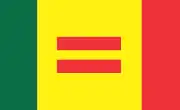
.JPG.webp)

.jpg.webp)
.jpg.webp)
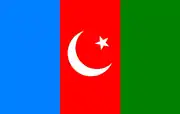
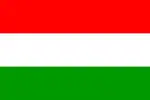
.png.webp)

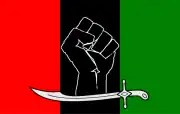
.svg.png.webp)




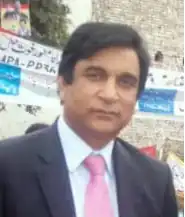
.svg.png.webp)







.jpg.webp)



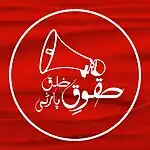


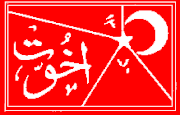





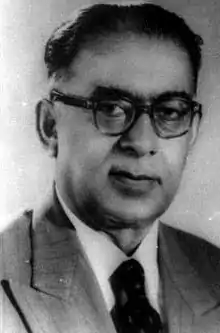
.png.webp)

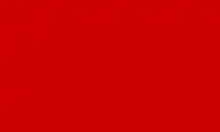
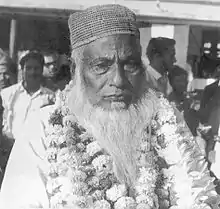
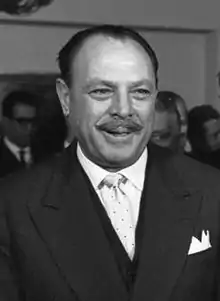


.jpg.webp)






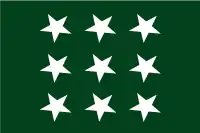



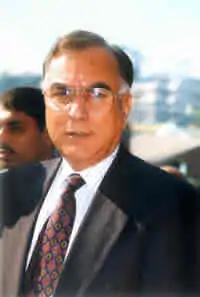

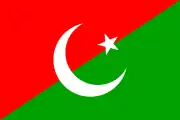
.jpg.webp)
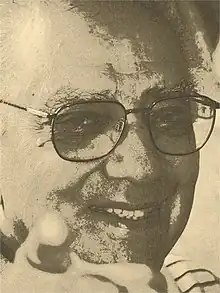


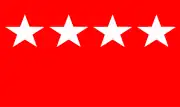
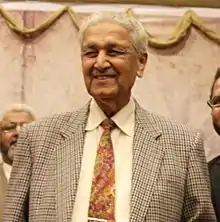

.jpg.webp)


